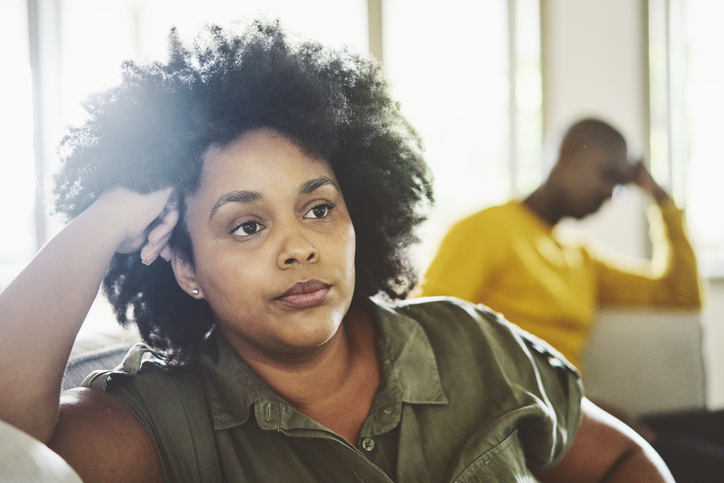
Source: Stígur Már Karlsson /Heimsmyndir / Getty
Whether you’ve voted yet or not, there is no question that you’ve seen more than your fair share of advertisements, social media posts, commercials and celebrity endorsements encouraging you to vote. I don’t have any numbers to prove this but I’d be willing to bet that most people we know are voting or have done so already.
Some of us were excited and proud to participate in this civic duty while others did so begrudgingly, choosing between two candidates they weren’t entirely excited about—simply because we cannot carry on this way.
But there is another group of people—who have also seen the advertisements, who know the stakes, and have chosen, for whatever reason, not to vote. Maybe it’s a rejection of our two-party system, maybe it’s commentary on the fact that after election season, time and time again, Black people have been left with empty promises. Perhaps they feel, in a system like the Electoral College, individual votes don’t matter all that much.
In a free country, that’s their right and prerogative.
But if someone expresses that right—particularly on Election Day—how should we handle it?
There are folks who are arguing that expressing your desire not to vote is not only counterproductive—it’s particularly contrarian given all of the effort that’s gone into encouraging people to vote in what’s been deemed the election of our lives.
Today, there’s a discussion about what you should do when you come across someone who doesn’t or didn’t vote.
There are people who argue that shaming is a rationale response given the fact that our entire democracy hangs in the balance.
And then there are others who believe that people have their reasons and they’re none of our business. And with the way the government and our current political structure has let Black people down for centuries, why should we feel obligated to participate?
Personally, I believe that there’s too much at stake not too. Everything from human decency to civil rights have been compromised or eliminated entirely under President Trump. I understand that as citizens we can’t always be the ones to fix some of the major problems of this country. (There are too many rich and powerful people behind the scenes.) But what we can do, we should. And for me, voting is a part of that equation.
When it comes to shaming, that’s not my bag either though. External shame doesn’t always go a long way in convincing people to do a certain thing. It may persuade other people not to share their opinions about voting but it’s not going to make some register and go stand in line for hours in the cold to cast a vote in an election that may or may not end in their favor.
Not to mention, there are people who believe their civic duty stops at the polls. And they’re shaming people who may not vote but are politically and communally engaged in other impactful ways.
Instead, I prefer to simply mute, ignore, or block people—on social media—who are not voting. If the non-voter is someone I know personally, I may be more inclined to share my opinions on the importance of this particular civic duty, but if these past four years and this one in particular hasn’t taught them to be engaged at this level, I don’t know what will.
So I protect my peace. Remove those frustrating messages from my phone and computer screen and keep wayward relatives at a distance until they come to their senses. It’s too important.
I’m not judging anyone who uses shame as a tactic, not voting out a racist bigot from the White House is shameful. But these days, with our energy being necessary in so many different arenas, I can’t afford to devote it toward shaming the people who don’t seem to get it.
See what other people had to say about this on the following pages.









